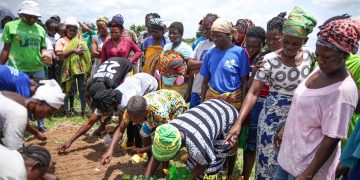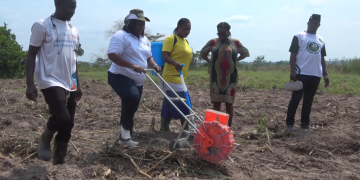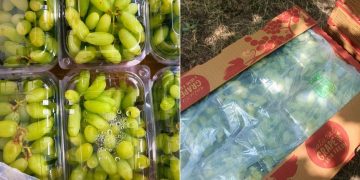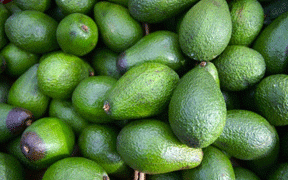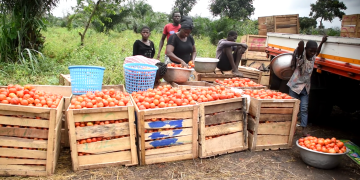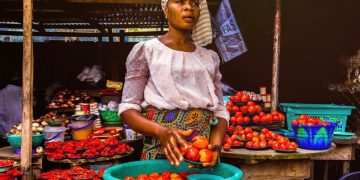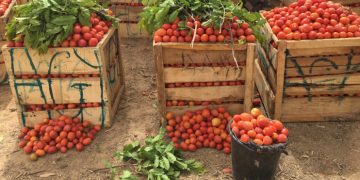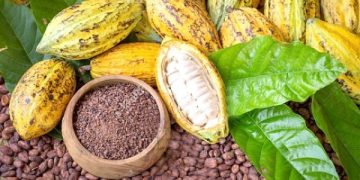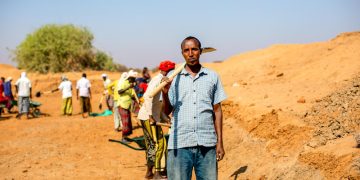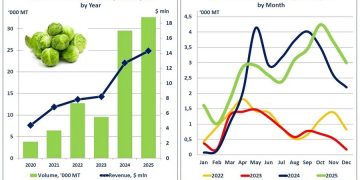Chili pepper farming is opening new income opportunities for farmers in Sakoti, a community in Ghana’s Upper East Region, following a hands-on training session that attracted over 400 participants. The initiative was led by Agrihouse Foundation with support from AGRA and funding from the Mastercard Foundation under the YEFFA Programme.
Through the “Boost to Bloom” project, women, youth, and persons with disabilities are being equipped with practical skills in chili pepper cultivation from nursery establishment and soil sterilization to pest control and group farming strategies.
Over 400 community members actively took part in the intensive training, underscoring the growing interest in sustainable agricultural practices and the economic potential of chili pepper farming in the region.
Alberta Nana Akyaa Akosa, Executive Director of Agrihouse Foundation, urged participants to take ownership of the initiative.
“We are encouraging group farming because it makes monitoring easier and creates opportunities for knowledge-sharing. With aggregation centers available, farmers can store and market their produce effectively. This project belongs to the community, and their seriousness will determine how far it grows,” she said.
Agricultural trainers demonstrated improved methods for producing healthy seedlings, including planting in rows to reduce pest attacks and adopting environmentally responsible pest management. Participants also received starter packs such as seed trays to help establish nurseries and put their new knowledge into practice.
For many women, the training provided renewed confidence in farming as a source of livelihood.
Kulu Benedicta a beneficiary described the program as “nice and impactful,” urging her peers to take it seriously.
Gifty Tankurong added:
“First, we used to plant anyhow, but now we know how to plant in rows for a better harvest. We will practice what we learned today, and I encourage the women to embrace this project with a positive attitude.”
With chili pepper already a common crop in Sakoti, the Boost to Bloom project is expected to enhance productivity, reduce post-harvest losses, and open access to new markets. By adopting improved practices and working collectively, women and youth in the community are positioning chili pepper farming as both a sustainable livelihood and a driver of local development.

